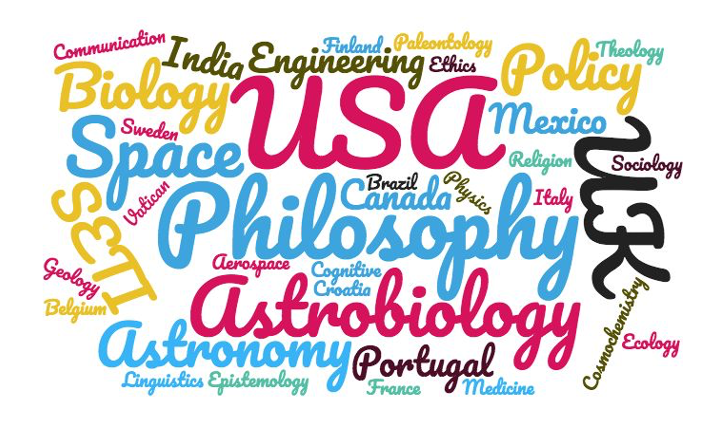
Agriculture, permaculture and terraforming
Start Date
17-12-2020 12:00 PM
End Date
17-12-2020 12:20 PM
Description
Since the development of astrobiology in the late 1990s, there has been growing interest in the potential and impact of astrobiological research on cultures, societies and peoples. It seeks to identify the potential effects of astrobiology and how anthropology can actively collaborate with scientists and their findings for society. The field of astrobiology is centered on three questions: How does life begin and evolve? Is there life in other parts of the universe? And what is the future of the earth and beyond? Thus, with the advancement of research, this script or mapping of astrobiological investigations has helped to maintain progress towards a new multidisciplinary understanding of biological, planetary and cosmic phenomena (Helmreich, 2009; 2011, 2012, 2015, 2018; Vakoch, 2000, 2014; Reagan, 2017; Chyba, 2005; Dick, 2012, Traphagan, 2014; Galante, 2016). We then sought a close dialogue of our research by extending a road map of issues raised by NASA Astrobiology Institute (NAI), Search for Extraterrestrial Intelligence (SETI), Messaging Extraterrestrial Intelligence (METI), and Massachusetts Institute of Technology (MIT Anthropology). We will examine the advances of astrobiology in social areas on core issues such as the origin/ evolution/future of life for cultures and societies; how research in astrobiology relates to questions about the meaning of life and the relationships of humans with *other* possible worlds beyond Earth from the anthropological perspective of science.
Recommended Citation
Dutra, Flora, "Agriculture, permaculture and terraforming" (2020). Society for Social and Conceptual Issues in Astrobiology (SSoCIA) Conference. 39.
https://egrove.olemiss.edu/ssocia/2020/schedule/39
Agriculture, permaculture and terraforming
Since the development of astrobiology in the late 1990s, there has been growing interest in the potential and impact of astrobiological research on cultures, societies and peoples. It seeks to identify the potential effects of astrobiology and how anthropology can actively collaborate with scientists and their findings for society. The field of astrobiology is centered on three questions: How does life begin and evolve? Is there life in other parts of the universe? And what is the future of the earth and beyond? Thus, with the advancement of research, this script or mapping of astrobiological investigations has helped to maintain progress towards a new multidisciplinary understanding of biological, planetary and cosmic phenomena (Helmreich, 2009; 2011, 2012, 2015, 2018; Vakoch, 2000, 2014; Reagan, 2017; Chyba, 2005; Dick, 2012, Traphagan, 2014; Galante, 2016). We then sought a close dialogue of our research by extending a road map of issues raised by NASA Astrobiology Institute (NAI), Search for Extraterrestrial Intelligence (SETI), Messaging Extraterrestrial Intelligence (METI), and Massachusetts Institute of Technology (MIT Anthropology). We will examine the advances of astrobiology in social areas on core issues such as the origin/ evolution/future of life for cultures and societies; how research in astrobiology relates to questions about the meaning of life and the relationships of humans with *other* possible worlds beyond Earth from the anthropological perspective of science.

